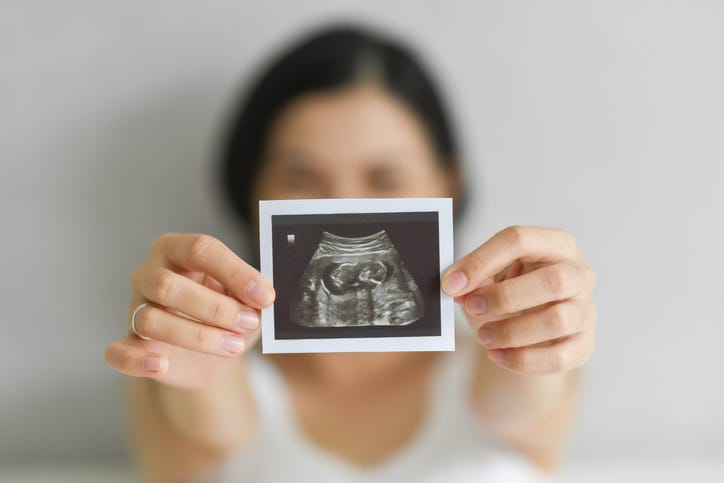
A New Jersey woman who thought she was experiencing symptoms of "long COVID" got the shock of a lifetime when she found out she was actually pregnant.
Not only was Jo Anne McCusker surprisingly pregnant, but she was diagnosed with a rare complication that is potentially deadly for both mother and baby.
McCusker shared her story with TODAY to bring awareness to placenta accreta spectrum disorders, which happen when he placenta does not detach from the uterus after delivery and cannot be forcibly removed without causing massive and potentially life-threatening bleeding, according to the National Institutes of Health.
After discovering that she was unexpectedly pregnant and in her second trimester, McCusker got another shock when she found out she had placenta percreta. It's a condition she had never heard of before.
"I was trying to gather as much information about percreta as I could, but there was very little information available beyond what the doctors told me," she said.
According to the March of Dimes, placenta percreta happens when the placenta attaches itself and grows through the uterus, sometimes extending to nearby organs, such as the bladder.
A study published in 2020 in the International Journal of Women's Health indicates that cases of the disorder are rapidly increasing, likely due to the increasing rates of cesarean delivery, which is the major risk factor for the condition in subsequent pregnancies.
"Ultimately no amount of planning or research I had done could prepare me for what actually happened and what I experienced," McCusker told TODAY.
Doctors made arrangements to deliver McCusker's baby via C-section at 34 weeks. The procedure carried an increased risk for blood loss, especially after testing determined McCusker's placenta had grown into her bladder.
During the procedure, the 36-year-old required a massive blood transfusion and reconstruction of her bladder. She ended up in the intensive care unit.
"I felt like I was hit by a truck. There was nothing that could have really prepared me for that," she told TODAY. "A lot of my initial recovery focused on getting mentally and emotionally strong after surviving a traumatic delivery."
As traumatic as it was, the delivery was successful and McCusker's son Kellen was born. He weighed just 4.85 pounds and was taken to the NICU, but was otherwise healthy.
McCusker said she hopes her story inspires other mothers struggling with placenta accreta spectrum disorders.
"It's really my hope to just raise awareness," she said. "I just want to let other moms know that if they're diagnosed with this, they are not alone."


